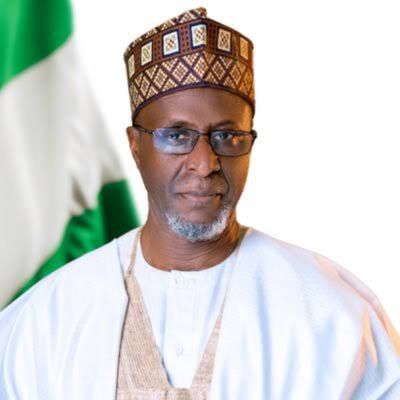Minister of Environment, Balarabe Abbas Lawal, said the Northeast part of Nigeria is grappling with challenges of climate-induced environmental degradation and other issues related to insurgency and terrorism, which have exacerbated food insecurity and strain their already stretched resources.
The minister said farmers are unable to cultivate their lands and food supply chains are broken leading to severe food shortages and heightened vulnerability among the population.
Lawal stated this recently at the high-Level event organised by the Food and Agriculture Organisation (FAO), tagged, “Partnering to ScaleUp Climate Actions in Fragile and Conflict Affected Situations (Fcs) – Zooming in on Food Security’.
He said the negative impacts of climate change ranging from rising temperatures, erratic rainfall patterns and increased frequency of extreme weather events such as floods and droughts have significant implications on the agricultural sector, which is the backbone of Nigeria’s economy and the primary source of livelihood to millions of Nigerians.
- Police recover 3-month-old baby in front of Anambra school
- 96 suspects arrested as police raid criminal hideouts in FCT
“In spite of all these daunting challenges, Nigeria is taking concerted steps towards addressing climate change and its impacts on food security. Several policy frameworks like the National Climate Change Policy, the revised National Determined Contribution (NDC), National Action Plan on Gender and Climate Change and Nigeria’s Climate Change Act 2021, have been adopted by Nigeria to mitigate the effects of climate change,” he said.
The minister said: “We are investing in climate-smart agriculture in order to enhance the resilience of our food systems as well as promote practices such as agroforestry, conservation agriculture and the use of drought-resistant crop varieties. Our aim is to improve food production while conserving our natural resources.”
While noting that partnerships and financing are vital in scaling up climate actions, Lawal said Nigeria has been proactive in engaging with international partners to mobilise resources and expertise, he said their collaboration with the Green Climate Fund (GCF) and other development partners has been instrumental in supporting our climate initiatives.
To tackle the challenges, the minister called on the international community to fulfill their commitments to climate financing, particularly for fragile and conflict-affected states, saying financial support is crucial for implementing adaptation and mitigation strategies, building resilient infrastructure and ensuring that vulnerable communities are not left behind.
This is also as he laid more emphasis on the participation of women, youths and indigenous communities at the forefront of our climate actions, adding that they are often the most affected by climate change and possess valuable traditional knowledge and practices that can contribute to sustainable solutions.

 Join Daily Trust WhatsApp Community For Quick Access To News and Happenings Around You.
Join Daily Trust WhatsApp Community For Quick Access To News and Happenings Around You.

